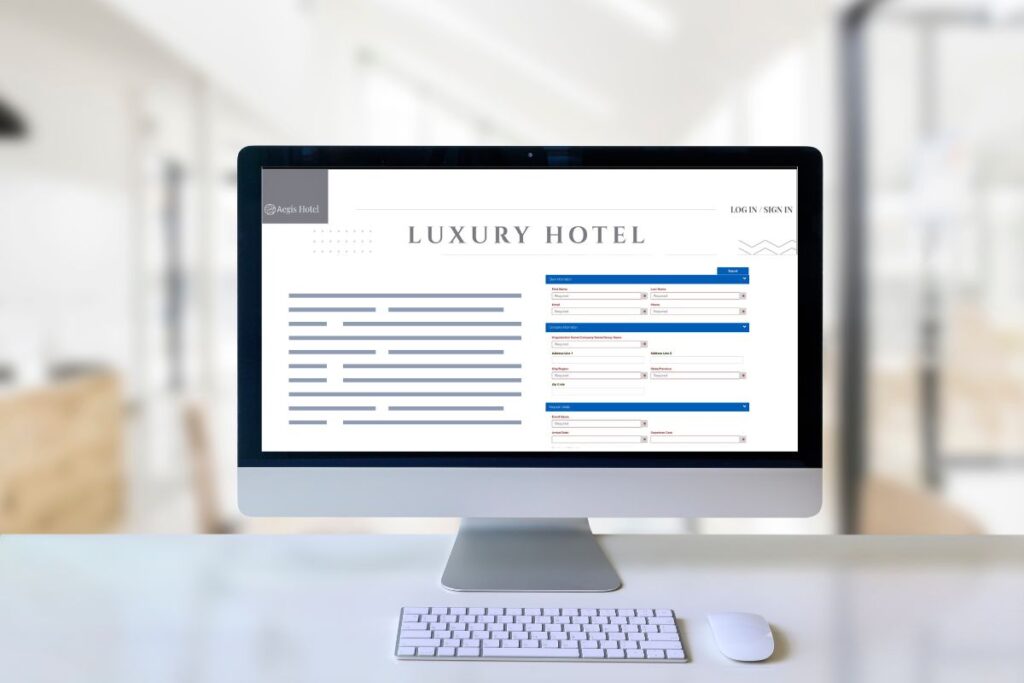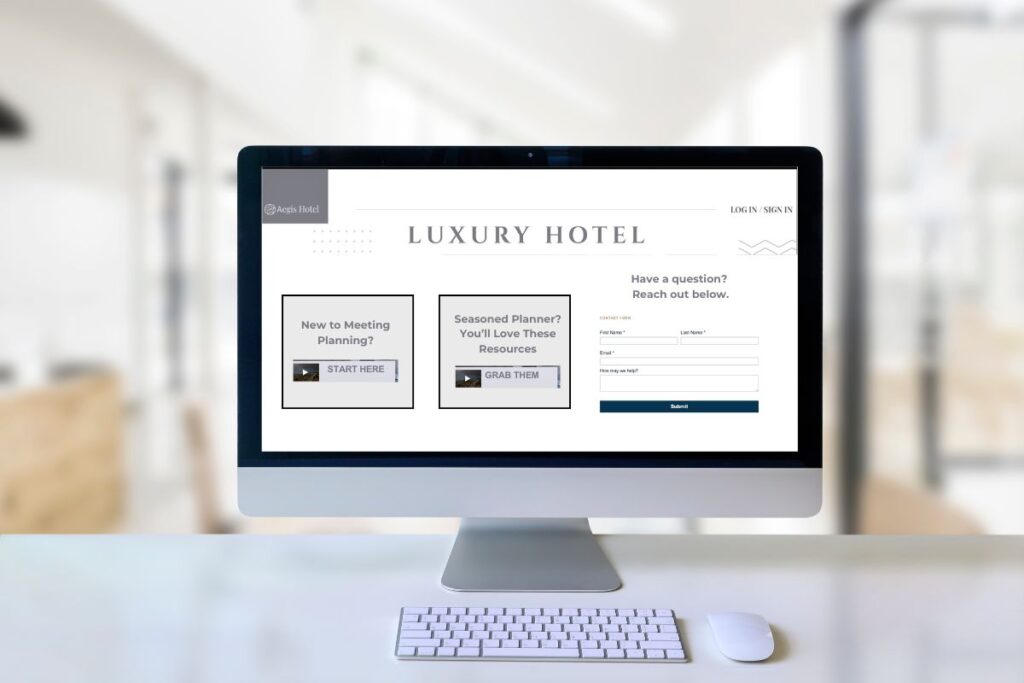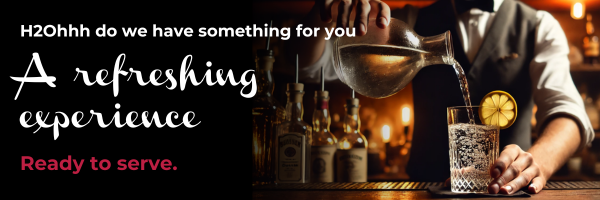Did You Know Your Website Is Actually Chasing Planners Away?
As a hotel group sales professional, you work hard to fill your pipeline.
But what if the biggest hurdle to boosting your group sales isn’t your efforts but the meeting page on your hotel website?
Too often, hotel meeting and event pages are overlooked, turning into missed opportunities rather than lead-generating machines.
Here’s the deal: event planners don’t just choose the first venue they see; their research is thorough.
Still, they don’t have time to fill out lengthy RFPs and wait for sales reps to call them with information.
Your property’s website is the ultimate first impression for planners, and detailed info is a game-changer. If your page is unclear, clunky, or hard to navigate, you lose potential clients before they even reach out.
The fix? A more user-friendly experience.
On the InnSync Show, Cory Falter chatted with SEO expert Sam Dunning of Breaking B2B Digital Marketing Agency to explain why this is a problem, how it’s hurting your business, and how you can fix it.
Let’s dive in.
Hotel Group Sales Strategy: Website Do’s and Don’t’s
A hotel’s website is more than just a digital brochure; it’s a powerful tool in your group sales strategy. A well-crafted website can draw in group bookings, while a poorly designed one can turn potential clients away.
The hotel industry is competitive, and having an effective hotel group sales strategy is crucial for success and maximizing hotel revenue.
Hotel websites often treat their group bookings event pages like an afterthought.
For many, the user experience is clunky, unclear, and downright confusing for potential clients.
Sam says, “Quite a lot of the time the B2B section is neglected… It’s usually unclear.”
Instead of inspiring confidence, hotels bombard potential planners with complicated RFP forms or vague descriptions.
The real trouble starts here: many of these planners are inexperienced.
Cory shared a great insight in the conversation, noting that “half of their business is coming from the non-professional or newbie planners. “These people don’t know where to start, and your website isn’t helping. They’re likely an admin assistant who’s just been told, “Hey, find a venue for our big event.”
If they land on a confusing page full of jargon and dead-end forms, they’re gone.

What Happens When You Confuse, You Lose
Now imagine Sally Sue, that admin assistant tasked with planning her company’s first big event. She’s under pressure to find the perfect venue, and like most people these days, she starts with a Google search.
She lands on your hotel’s event page. What does she see? A beautiful photo and some stats about square footage, but she’s not sure what to do next.
She has questions—“Is this venue the right size? What’s the booking process? Can I talk to someone?”—but the only option she’s given is a 20-question RFP form.
No quick answers. No guidance.
When your website fails to engage potential clients quickly, you’re not just losing inquiries—you’re bleeding revenue.
As Cory pointed out, “Some of these sales… it could be tens if not hundreds of thousands of dollars.”
It’s not just a missed opportunity—it’s a gaping hole in your revenue funnel.
YOU MAY ALSO ENJOY: The Rise of the DIY Hotel Sales Process
The Solution: Transform Your Website Into a 24/7 Sales Machine

Fixing your event page doesn’t need to be complicated, but it does require a strategy.
Here’s how you can make your hotel’s website work for you, not against you, in attracting group business:
Make Your Offering Clear from the Start
Sam nailed it when he said, “You want to make sure that value proposition… is quite clear in the headline at the top.”
What does your venue offer? Whether it’s corporate conferences, team-building retreats, or executive board meetings, lead with that information. You’ve got about three seconds to grab someone’s attention—don’t waste it.
For example, if your southern California venue is perfect for large-scale business conferences, say, “San Diego’s Premier Business Event Venue.”
Streamline the Inquiry Process
Let’s retire those long-winded RFP forms.
Instead, offer potential clients a simple, clear way to ask questions or get more information.
Sam suggested a smart approach: “Make it easy for someone to book time with a specialist.”
A short form asking for their name, email, and a section for them to add a few details about the event or a simple question is enough to get the conversation started without overwhelming them.
Use Social Proof to Build Trust
When was the last time you booked a hotel without reading reviews? It’s probably been a long time!
Yet, for some reason, hotel event pages are woefully lacking in testimonials and case studies.
As Cory put it, “We’re obsessed with looking at reviews when we book a vacation, but on the meetings and events side, they’re non-existent.”
Fix this by adding video testimonials or written reviews from past clients. Showcase the success of previous events with photos, stats, and quotes.
Your goal is to make visitors think, “If they pulled off an amazing event for that company, they can do it for me, too.”
Address Common Questions Upfront
Most planners will have similar questions: How much space do you have? What’s the pricing range? Do you offer catering?
By addressing these questions upfront, you’ll reduce friction and build trust.
Sam emphasized, “If we can address those questions… it saves our sales team answering those questions on calls or back and forth on email.”
Think of your website as a 24/7 salesperson—let it do the work for you.
Not sure how your website is performing? Take our quick 5-question assessment below.
Turn Confusion into Confidence with a Hotel Sale Page That Converts
If your hotel’s event page is confusing or incomplete, you’re losing business.
But with a few key changes, you can turn it into a powerful lead generator that works around the clock.
Make your offering clear, streamline the inquiry process, showcase social proof, and answer common questions upfront. These fixes won’t just improve your website—they’ll help you capture more business, build trust with potential clients, and unlock revenue that’s currently slipping through your fingers.
Remember: when you confuse, you lose. Make it easy for clients to say “yes” to your venue.
Optimizing the Sales Process for Group Bookings
Streamlining the sales process for group bookings is key to boosting revenue and ensuring a seamless guest experience.
Here are some strategies to optimize this process:
- Identify Your Target Market: Tailor your sales strategy to meet the specific needs of your target audience, whether they are corporate clients, wedding planners, or event organizers.
- Build Relationships: Develop strong connections with event planners and meeting coordinators. Personal relationships can lead to repeat business and referrals.
- Offer Customized Packages: Create tailored packages and promotions that cater to the unique requirements of group bookings.
- Leverage Technology: Use technology to simplify the booking process and enhance communication with potential clients. Online booking systems and CRM tools can streamline operations.
- Provide Exceptional Customer Service: Ensure that your sales team offers top-notch service and follows up with potential clients to guarantee a positive experience.
By focusing on these areas, you can make the group booking process more efficient and attractive to potential clients.
Hotel Group Sales Strategy: Converting & Retaining More Repeat Business
Hotel group sales are a critical component of the hospitality industry, driving both revenue and occupancy.
To effectively manage group events, it’s essential to understand your target market and tailor your hotel room sales strategies to meet their needs. Strategies such as offering flexible meeting spaces, and customized packages can attract group bookings, while loyalty programs and excellent customer service can encourage repeat business.
Leveraging technology, optimizing your website for group sales, and using data and analytics to measure success are all crucial elements of a successful hotel sales strategy.
By focusing on these areas, hotels can drive revenue, increase spaces sold, and achieve their sales goals in the competitive hospitality industry.





